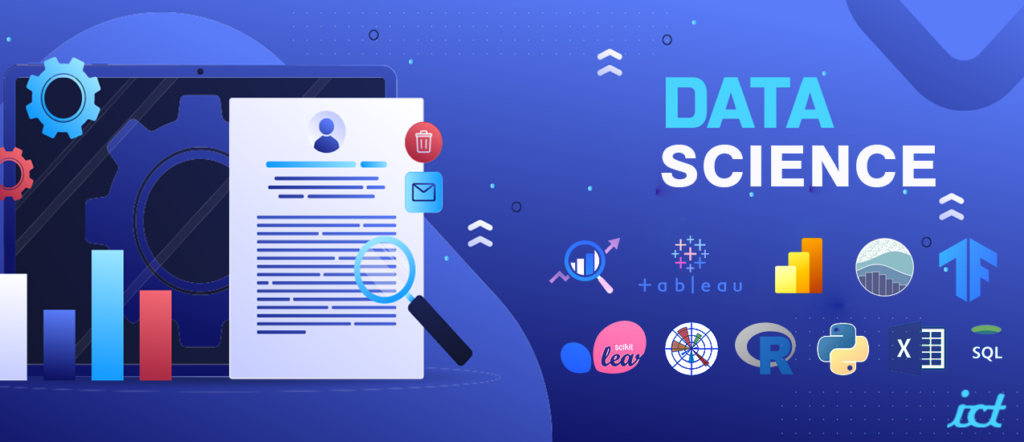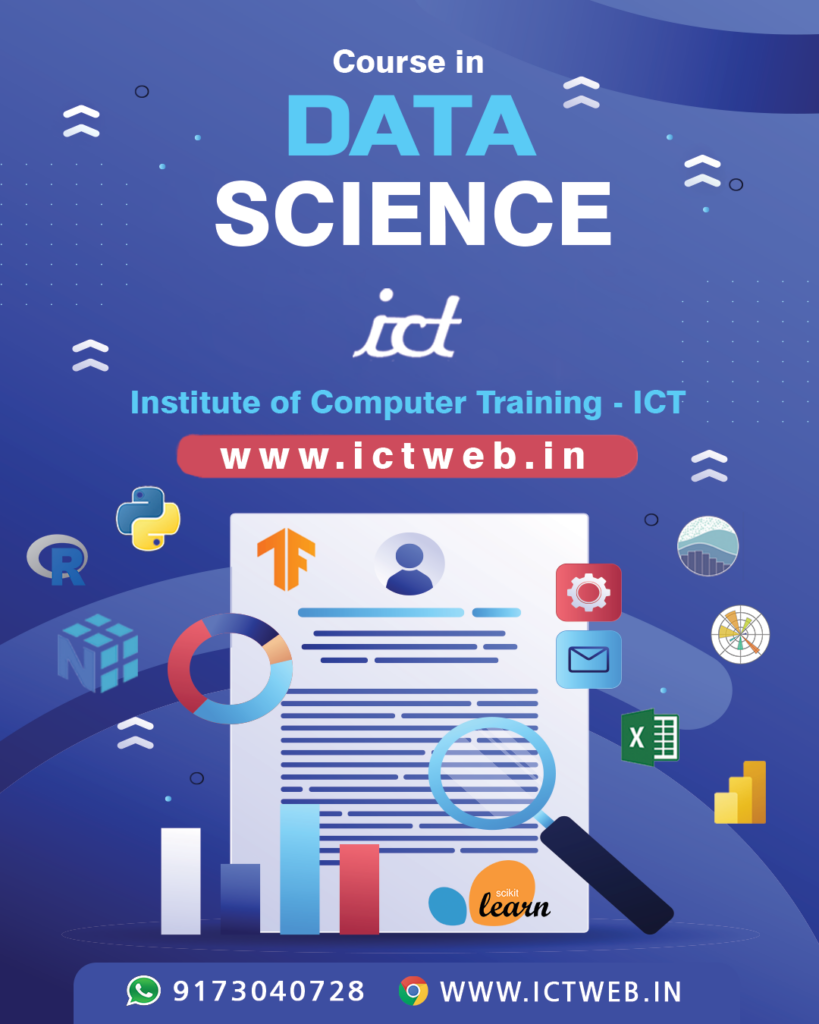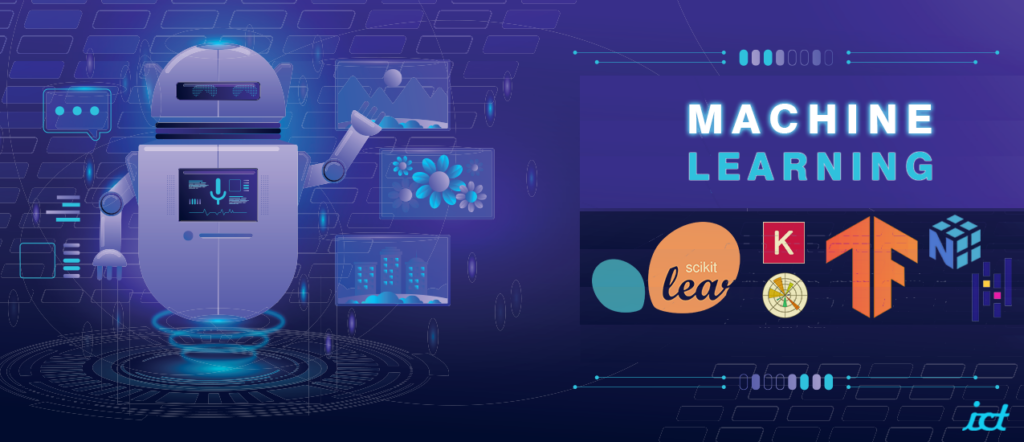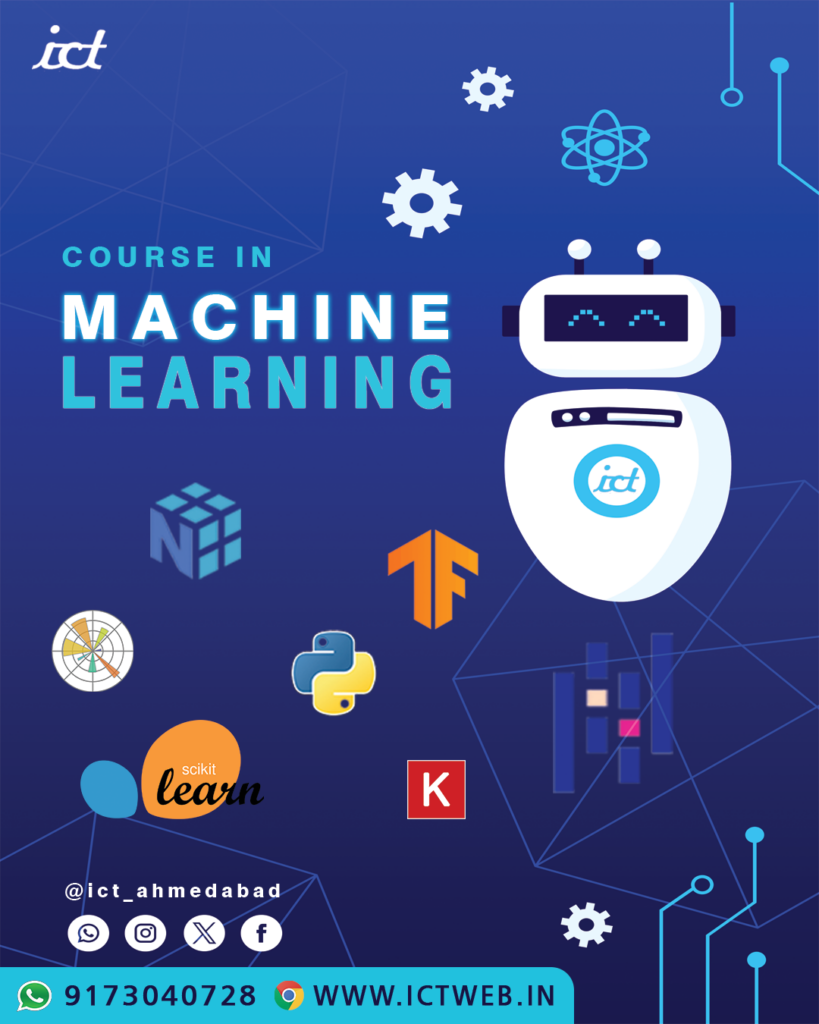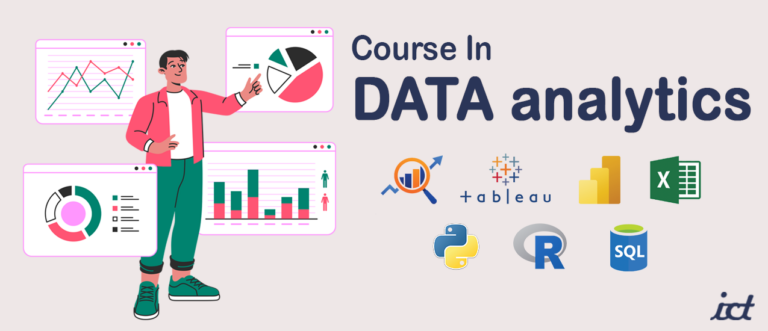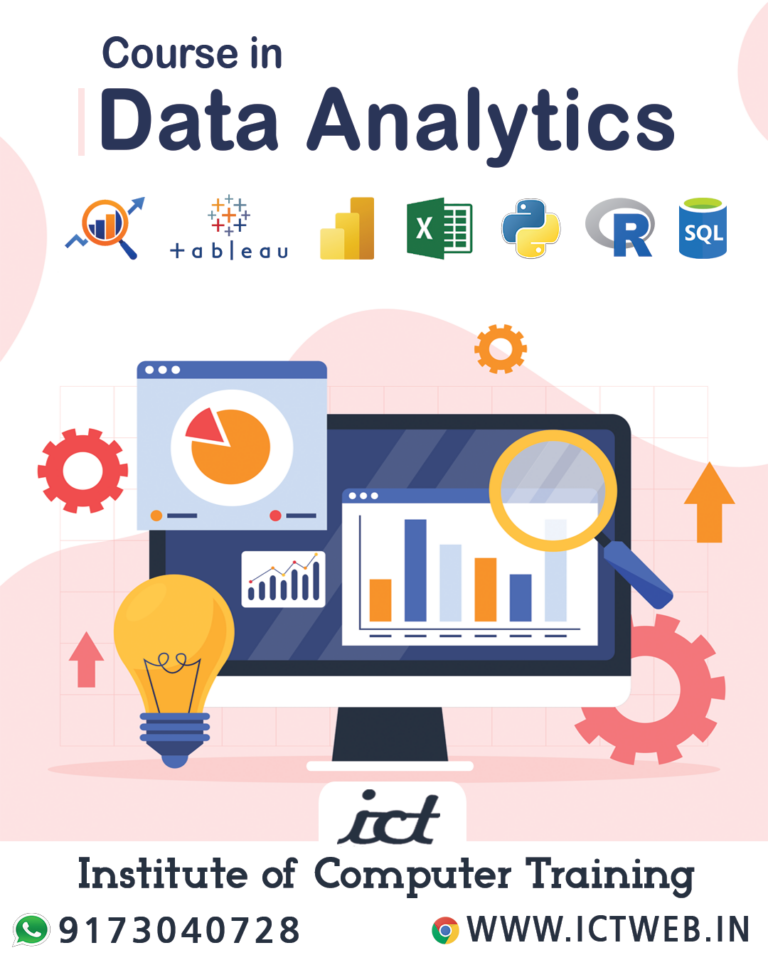The Course in Data Science by ICT South Bopal, Ahmedabad offers a comprehensive and industry-relevant learning experience aimed at equipping students with the essential skills and knowledge needed to thrive in the rapidly growing field of data science. With the increasing demand for professionals skilled in data analysis, machine learning, and artificial intelligence, this course is designed to meet the evolving needs of both individuals looking to break into the data science field and professionals who wish to upskill or reskill. Located in the dynamic city of Ahmedabad, ICT(Institute of Computer Training) South Bopal provides a conducive learning environment with state-of-the-art infrastructure, expert faculty, and industry collaboration that enables students to gain hands-on experience with real-world projects and tools. Data science is one of the most sought-after careers today, with applications spanning across industries such as healthcare, finance, retail, technology, and marketing. However, the gap between demand and skilled professionals is still significant, creating a need for well-structured courses that can provide students with both theoretical knowledge and practical expertise. The ICT South Bopal Data Science course recognizes this gap and aims to bridge it by offering a curriculum that is not only rich in academic learning but also includes practical training and real-time project work.
Data Science Course Syllabus
Module 1: Introduction to Data Science.
Module 2: Data Exploration and Preparation.
Module 3: Probability and Statistics for Data Science.
Module 4: Data Visualization.
Module 5: Machine Learning Basics.
Module 6: Supervised Learning Algorithms.
Module 7: Unsupervised Learning Algorithms.
Module 8: Model Evaluation and Selection.
Module 9: Advanced Topics in Machine Learning.
Module 10: Big Data and Cloud Technologies (Introduction)
Module 11: Final Project
The “Course in Machine Learning” offered by ICT(Institute of Comptuer Training) South Bopal, Ahmedabad provides an in-depth exploration of the foundational principles and advanced techniques used in the field of machine learning. Designed for individuals seeking to enhance their knowledge and practical skills, the course covers a broad range of topics, including supervised and unsupervised learning, neural networks, deep learning, and reinforcement learning. With a blend of theoretical knowledge and hands-on experience, participants will work on real-world projects and datasets, gaining proficiency in popular programming languages like Python and R, as well as industry-standard tools and libraries such as TensorFlow and scikit-learn. Whether you’re a beginner or have some experience in the field, this course equips you with the necessary tools and methodologies to excel in the rapidly growing domain of machine learning.
ML Course Syllabus
Module 1: Introduction to Machine Learning.
Module 2: Data Preprocessing and Exploration.
Module 3: Supervised Learning.
Module 4: Unsupervised Learning.
Module 5: Ensemble Learning.
Module 6: Neural Networks and Deep Learning.
Module 7: Reinforcement Learning.
Module 8: Special Topics in Machine Learning.
Module 9: Ethics and Future of Machine Learning.
Assessments and Projects.
In today’s data-driven world, the ability to analyze and interpret data is crucial for making informed decisions across all industries. Data analytics has become a vital part of business operations, driving strategies, identifying trends, and uncovering insights that influence decision-making processes. As such, a Data Analytics course has become an invaluable asset for individuals looking to enhance their skill set and advance their careers. Whether you’re a beginner or an experienced professional, mastering data analytics can open doors to a wide range of opportunities. ICT (Institute of Computer Training) Ahmedabad gives Best Data Analytics Course Training at Ahmedabad and Online.
Data analytics refers to the process of inspecting, cleaning, transforming, and modeling data with the goal of discovering useful information, drawing conclusions, and supporting decision-making. It involves applying statistical, computational, and logical techniques to data to uncover hidden patterns, relationships, and trends. Data analytics is used to derive actionable insights that can help organizations optimize operations, improve customer experiences, and predict future outcomes.
The four main types of data analytics are:
Descriptive Analytics: This type focuses on summarizing historical data to understand what has happened. It often uses tools like reports, dashboards, and data visualization to provide a snapshot of past performance.
Diagnostic Analytics: This type explores the reasons behind past outcomes. It involves deeper analysis and identifies the cause-and-effect relationships within the data to answer “why” something happened.
Predictive Analytics: Predictive analytics uses historical data and statistical algorithms to forecast future outcomes. It helps businesses anticipate trends and make proactive decisions.
Prescriptive Analytics: This type recommends actions to achieve desired outcomes. By using optimization and simulation techniques, prescriptive analytics helps organizations determine the best course of action.
Module 1: Introduction to Data Analytics
- Overview of Data Analytics
- Importance of Data Analytics
- Tools and Software for Data Analytics
- Introduction to Excel, Python, R, SQL, Power BI, Tableau, and other tools
Module 2: Data Collection and Data Sources
- Types of Data
- Sources of Data
- Data Acquisition Techniques
Module 3: Data Preprocessing
- Understanding Data Cleaning
- Data Wrangling Techniques
- Data Quality Assessment
Module 4: Exploratory Data Analysis (EDA)
- Descriptive Statistics
- Visualization Techniques
- EDA Process
Module 5: Introduction to Statistical Analysis
- Basic Statistical Concepts
- Inferential Statistics
Module 6: Predictive Analytics
- Introduction to Predictive Modeling
- Model Evaluation Metrics
- Overfitting and Underfitting
- Tools for Predictive Analytics
- Python (Scikit-learn, Statsmodels)
- R (Caret, randomForest)
Module 7: Time Series Analysis and Forecasting
- Introduction to Time Series Data
- Forecasting Techniques
- Model Evaluation for Time Series
Module 8: Advanced Data Analytics Techniques
- Machine Learning Algorithms Overview
- Clustering and Unsupervised Learning
- Natural Language Processing (NLP) Basics
Module 9: Data Visualization and Reporting
- Data Visualization Principles
- Tools for Visualization
- Tableau, Power BI
- Python (Matplotlib, Seaborn), R (ggplot2)
- Dashboard Design and Interactive Reporting
- Designing Effective Dashboards
- Building Interactive Dashboards in Tableau/Power BI
Module 10: Big Data Analytics and Tools ( Introduction )
- Introduction to Big Data
- Data Warehousing and Data Lakes
- Big Data Analytics Frameworks
Module 11: Ethics and Data Privacy
- Ethical Issues in Data Analytics
- Data Privacy and Security
- Responsible Data Use
Module 12: Data Analytics Projects

